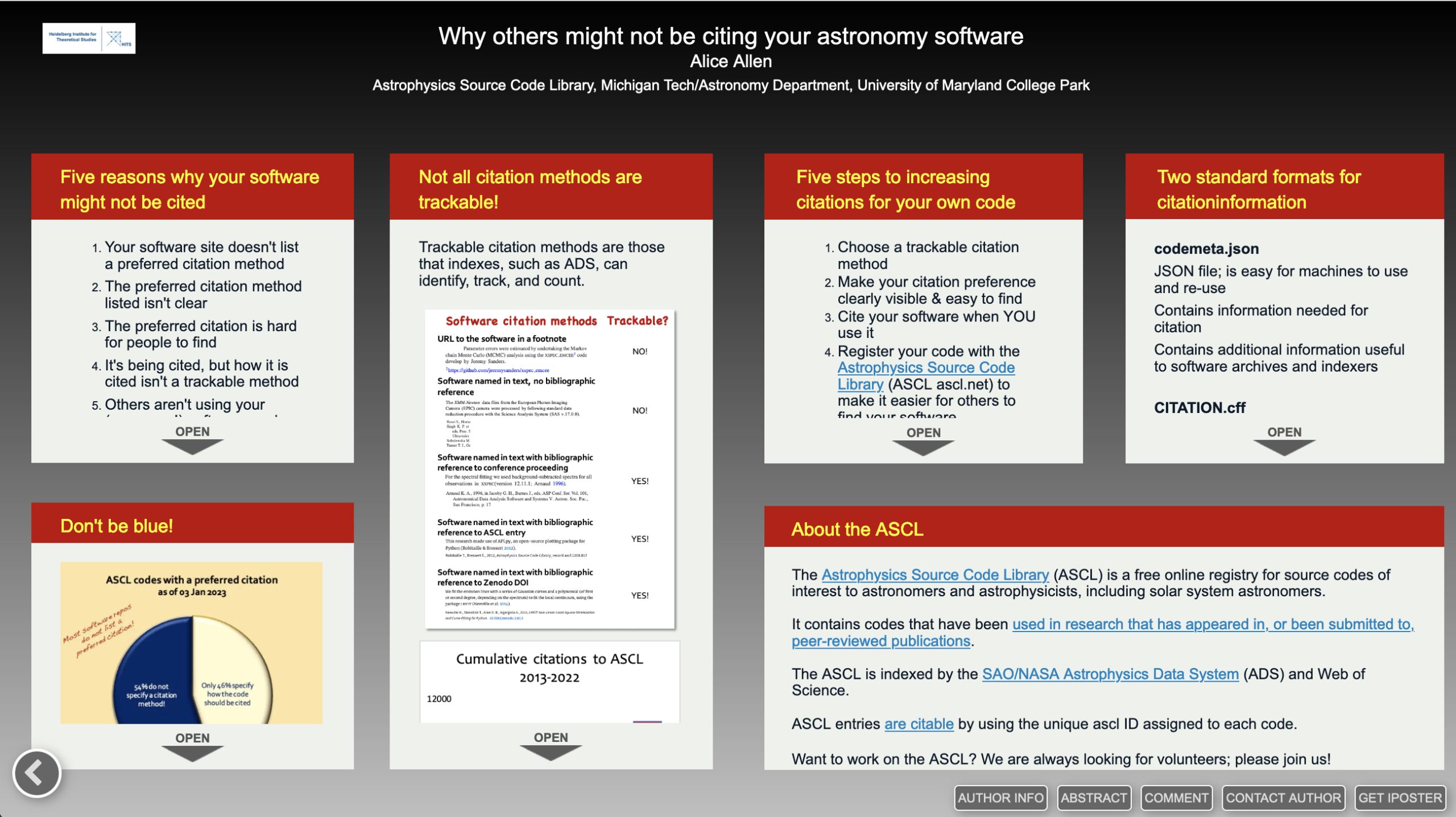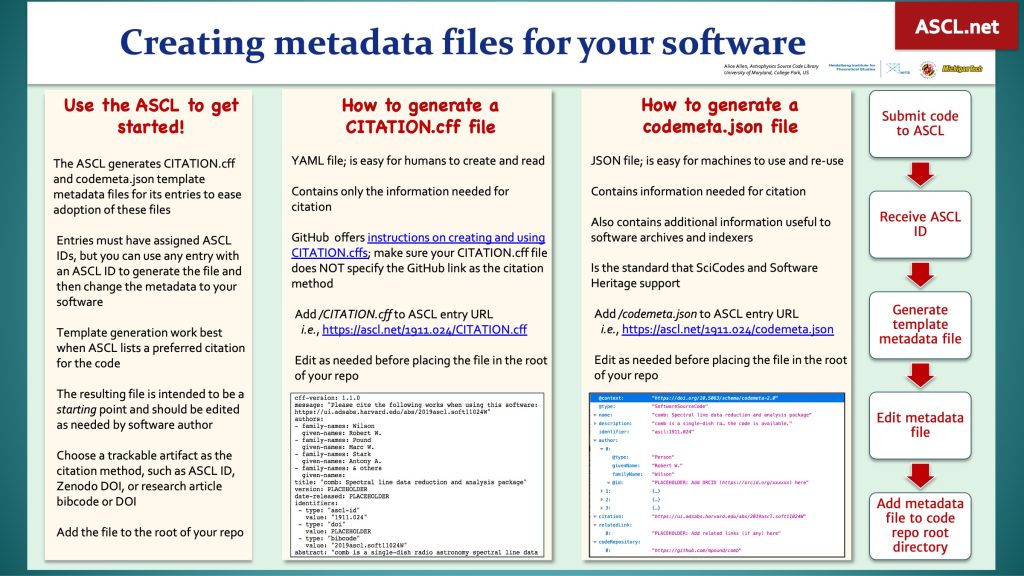The ASCL is at the 243rd meeting of the American Astronomical Society (AAS), which is taking place in the major food destination New Orleans. In addition to tracking down beignets and bread pudding, ASCL team members have shared the stage with others in a Special Session and have presented iPosters. The Special Session was held on Monday afternoon; iPosters were presented on Monday and Tuesday evenings.
~~~~~
Special Session: Into the Future: Building on 25 Years of Community Organization in Astro Software Development
Abstract: Over the past 25 years, astronomy has seen many changes involving research software development. These include improved transparency, improved software availability, and changes in journal policies. Formal recognition of community-based software development has increased through targeted funding, the establishment of new journals specifically focused on software, and code citation.
Changes in astro software development include the rise of open social coding sites such as GitHub and GitLab, the establishment and growth of conferences devoted to or including research software (such as ADASS, FORCE11, and the Research Data Alliance), and community-based training in software development (for example, The Carpentries and SciCoder) and exploration (for example, .dotastro and hack days) events.
This Special Session will look back at the community-driven work that has enabled some of these changes and look forward to future horizons for the software community in astronomy. Leaders of some of these community efforts will serve on an expert panel and will share their perspectives, after which the floor will be open for discussion with participants.
Speakers
Peter Teuben, University of Maryland, College Park: Introduction and Overview
Demitri Muna, Chief Science Data Office, NASA HQ: Software Training for Research Scientists: SciCoder and Other Efforts
Aarya Patil, Max Planck Institute for Astronomy: Building the AstroPy Community
Robert Nemiroff, Michigan Technological University: How and Why the Astrophysics Source Code Library Was Formed
Kimberly DuPrie, Space Telescope Science Institute: Lessons from Industry
~~~~~
iPoster: Using the Astrophysics Source Code Library in the classroom
Alice Allen, Astrophysics Source Code Library; Kimberly DuPrie, Space Telescope Science Institute; Peter Teuben, University of Maryland, College Park; Robert Nemiroff, Michigan Technological University
Abstract: The Astrophysics Source Code Library (ASCL, ascl.net) is an online registry of source codes used in refereed astrophysics research. It currently lists over 3,300 codes and covers all aspects of computational astrophysics, and all of its public metadata about software can be downloaded. This presentation covers possible ways the ASCL can be used by educators and their graduate students. The ASCL serves as a discovery tool for codes that can be used for one’s own research. Graduate students can also investigate existing codes to see how common astronomical problems are approached numerically in practice, and use these codes as benchmarks for their own solutions to these problems. Further, they can deepen their knowledge of software practices and techniques through examination of others’ codes, and can use the ASCL’s data set for research on computational methods in astrophysics.
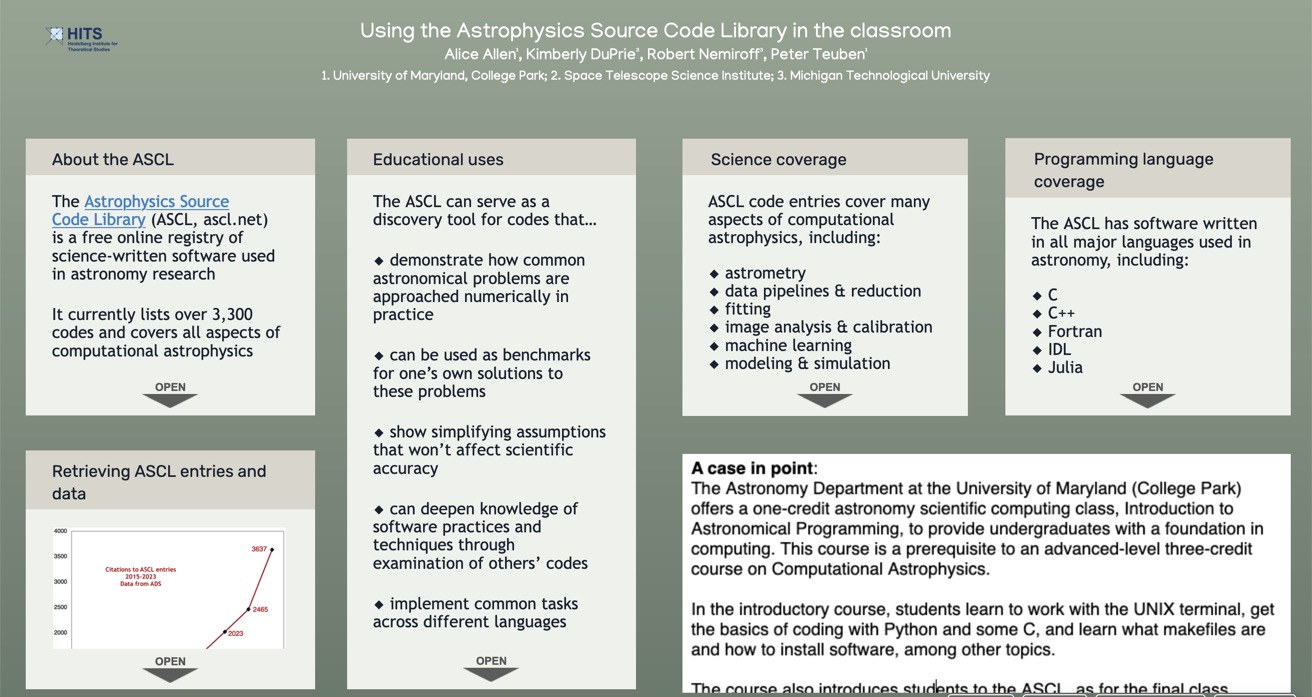
Screenshot of Using the Astrophysics Source Code Library in the Classroom iPoster
~~~~~
iPoster: ASCL, ADS, and EMAC: Improving the visibility and citability of exoplanet research software
Alice Allen, Astrophysics Source Code Library; Alberto Accomazzi, Center for Astrophysics | Harvard & Smithsonian; Joe Renaud, UMD College Park / NASA Goddard.
Abstract: The Astrophysics Source Code Library (ASCL, ascl.net) is a free online registry for source codes of interest to astronomers, astrophysicists, and planetary scientists. It lists, and in some cases houses, software used in research that has appeared in, or been submitted to, peer-reviewed publications. It now has over 3300 software entries and is indexed by ADS and Clarivate’s Web of Science. In 2020, NASA created the Exoplanet Modeling and Analysis Center (EMAC, emac.gsfc.nasa.gov). Housed at the Goddard Space Flight Center, EMAC serves, in part, as a catalog and repository for exoplanet research resources. EMAC currently has 223 entries, 77% of which are for downloadable software. This presentation will cover the collaborative work the ASCL is doing with EMAC and with NASA’s Astrophysics Data System (ADS) to increase the discoverability and citability of EMAC’s software entries and to strengthen the ASCL’s and ADS’s ability to serve the planetary science community.
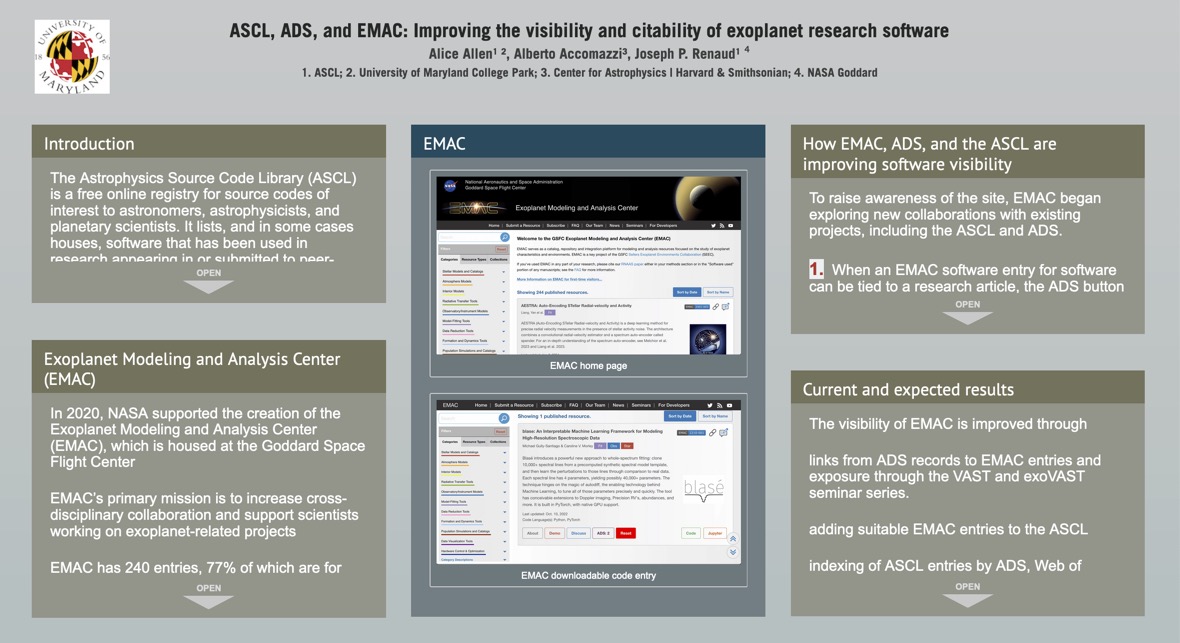
Screenshot of ASCL, ADS and EMAC: Improving the visibility and citability of exoplanet research software iPoster

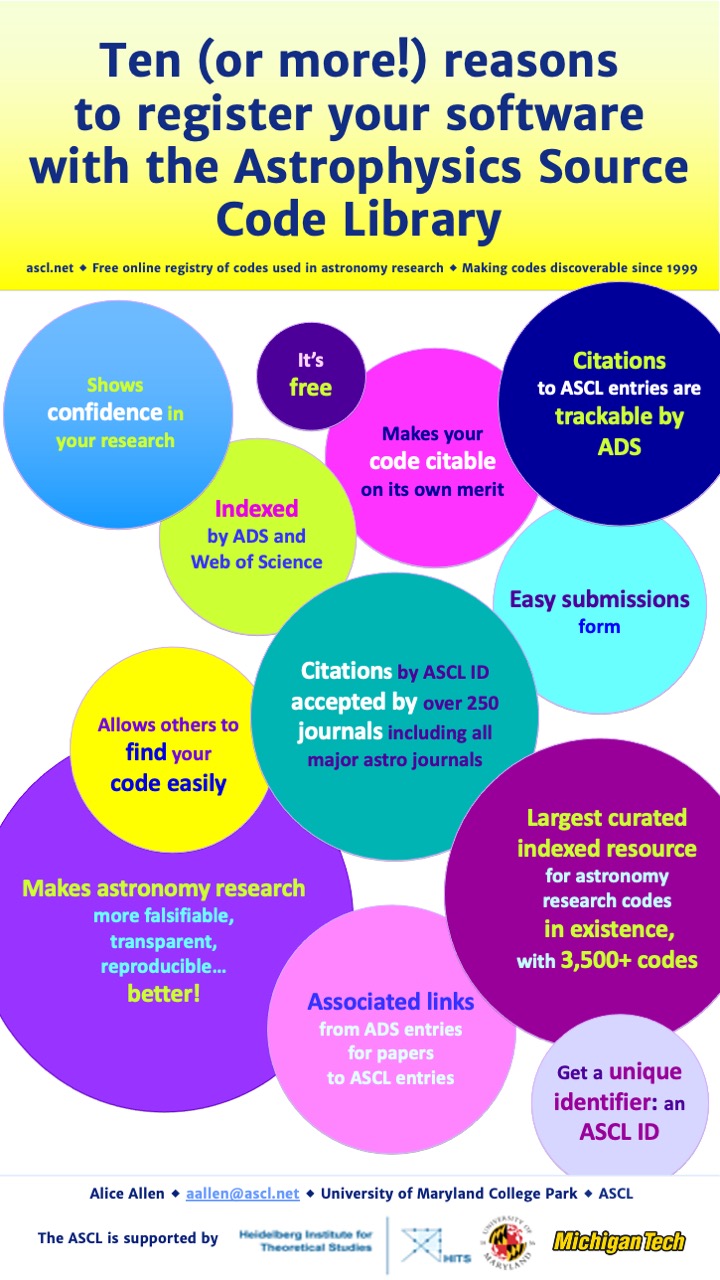
![Poster title: How Important is Software to Astronomy? Poster text: Software is the most used instrument in astronomy All astronomers use software Robust research requires reproducibility and transparency Computational methods are methods, and should be easily discoverable and open to examination Releasing source code demonstrates confidence in your results and improves efficiency in the discipline Astrophysics Source Code Library (ASCL, ascl.net) • Is a free curated online registry and repository for astro research source codes • Has over 3400 entries • Is indexed by ADS and Web of Science • Includes all major codes that have enabled astro research • Makes it easy to find this software • Advocates for open source and FAIR practices • Is citable and citations to its entries are tracked by major indexers • Adds new and old codes monthly ASCL entries have been cited more than 16,000 times in over 240 journals How to use the ASCL Register your code with the ASCL to make it easier for others to find and to get an ASCL ID to use for citing the software Search for useful downloadable software Find preferred citation information for software you’ve used in research Introduce students to variety of methods available for solving common astronomical problems e community Provides a curated resource for software methods Links research articles with the software that enables that research; links are passed to ADS, so also appear in that resource Allows for citation to software on its own merits without the need to write a separate article for it References [1] Momcheva, I. & Tollerud, E., 2015. Software Use in Astronomy: an Informal Survey, doi:10.48550/arXiv.1507.03989 [2] ASCL dashboard, https://ascl.net/dashboard, retrieved 16 July 2024](https://ascl.net/wordpress/wp-content/uploads/2024/08/IAU2024ASCL_A1poster.jpg)


